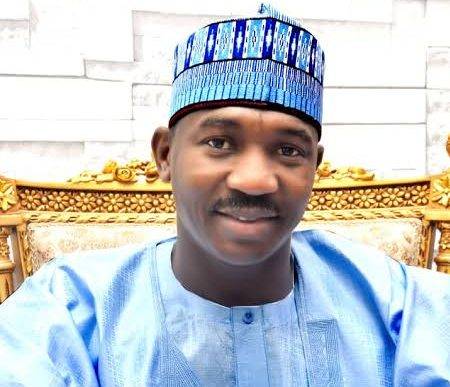This week, I am attending a conference in Sao Tome on the persistence of the threat of coups and other forms of unconstitutional change of government (UCG) organised by the United Nations Office for Central Africa. Since 2020, at least seven countries have faced UCGs, including the recent case in Central Africa, Gabon in 2023; while in West Africa, four countries have been affected: Mali twice in 2020 and 2021, Guinea in 2021, Burkina Faso twice in 2022 and Niger in 2023; and in East Africa in Sudan in 2021. They disrupted the existing institutional and legislative framework, leading to transitions that are not always linear, increasingly protracted and in some instances, open-ended. There has also been the exceptionalism displayed in relation to the specific context of Chad in April 2021 when their coup occurred. There were voices calling for the immediate suspension of the country, in accordance with the legal instruments of the African Union (AU), while others emphasized that Chad’s particular security situation warranted a distinct approach. Ultimately, the AU Peace and Security Council neither imposed sanctions nor suspended Chad, a position also adopted by the Economic Community of Central African States (ECCAS). Such exemptions always create difficulties in legitimately defending principles thereby weakening African institutions.
The story of UCG is always complex and while there should be no justification, the context is always important. The Mali coup had roots in the then president, Ibrahim Boubacar Keita, using the constitutional court to remove elected opposition legislators and make himself “sole authority”. In Guinea, the Octogenarian Alpha Conde had used State power to impose himself as an unconstitutional third term president and was determined to remain in power for the rest of his life. In Gabon, President Ali Bongo had a stroke way back in 2018 and was unable to exercise power effectively but his wife essentially took over power using the powerful words that “my husband directs you to….”. The Bongo family had ruled the country as a personal estate for 56 years. In Chad, the tradition of “power to the strongest war lord” qualified Deby the son to take over from Deby the daddy when the President died in the war front. The other element of context in Chad was that late President Deby had explained that he was ready to hand over power way back in 2005 when their hegemon, France, directed him to stay in power given the great role he was playing in the war on terror. The African story of power has been for too long the concentration of power and arbitrariness in the hands of a person, and increasingly, on his family.
In other words, so many African countries have continuously disregarded their commitments to respect good governance, democracy, respect for fundamental freedoms and human rights, tolerance, and the culture of peace as essential prerequisites for the establishment and maintenance of peace, security and stability enunciated in the Lome Declaration of 2000. The owners of Lome, Eyadema the father and the son have ruled the country where the Declaration was made for 58 years so far and the dynasty has become very adept at inventing strategies for self-preservation in power. It is not really surprising if the coup option emerges repeatedly as the only way out. The problem is that the coup makers don’t try to change the politics, they often seek to make themselves the new dynasty in power. Africa must find democratic means for removing political leaders that insist on staying in power beyond their legitimate tenure.
The conference on UCGs in Central Africa organised by UNOCA, with the technical support of the Institute for Security Studies (ISS), analysed extensively this issue of context but also the root causes, normative frameworks, and policies to prevent the recurrence of the phenomenon through improving the quality of governance. There was close examination of the strengths and limitations of normative frameworks and policies aimed at preventing unconstitutional changes of government as well as supporting and ensuring transitions towards a return to a democratic constitutional order. There was also a lot of focus on how ECOWAS misapplied its sanctions regime in West Africa leading to the decision of Mali, Burkina Faso and Niger to announce their departure from the regional body and the weakening of the edifice of ECOWAS.
There were also discussions on the applicability of the African Union principles on good governance and democracy, such as the African Peace and Security Architecture (APSA) and the African Governance Architecture (AGA). There are insufficiencies in the instruments and they are not always applied consistently. In respect of the principle of subsidiarity, the African Union has in principle largely positioned itself in support of the Regional Economic Communities and Regional Mechanisms (RECs/RM) but this sometimes leads to heightening the differences based on their normative texts and mechanisms.
The Central Africa region has experienced fewer UCGs than other regions. However, the recent UCGs have provoked a reflection on the prevention of UCGS, in a context where the existing regulatory frameworks do not seem able to prevent UCGs, let alone provide adequate support for the resulting transitions to generate more resilient and stable governments. This situation highlights the need to reassess preventive normative frameworks and mechanisms that failed to avert the occurrence of coups, to conceptualise transitions as possible preventive periods to lay the foundations for addressing the structural fragilities that fuel recurrent instability while avoiding relapses, and to maintain focus beyond the post-coup elections on key structural changes needed for stability and inclusive development.
This raises the crucial question of the appropriate political practices and institutional regulatory framework required to not only prevent UCGs but also accompany, when they occur, transitions towards a return to a sustainable and democratic constitutional order. For an organisation such as ECCAS, addressing this issue and elaborating appropriate framework is an urgent priority, based on lessons from other contexts including the Economic Community of West African States (ECOWAS). ECOWAS is equipped with a regulatory framework for managing UCGs which is based on numerous instruments – the 1993 Revised ECOWAS Treaty, the Protocol relating to the Mechanism for Conflict Prevention, Management, Resolution, Peacekeeping and Security of 1999 and the 2001 Supplementary Protocol on Democracy and Good Governance. Developing these instruments have been an important step in providing tools to address governance deficits but at the end of the day, the important marker always remains the will and capacity to remain anchored to the implementation of the principles enunciated in the instruments.




